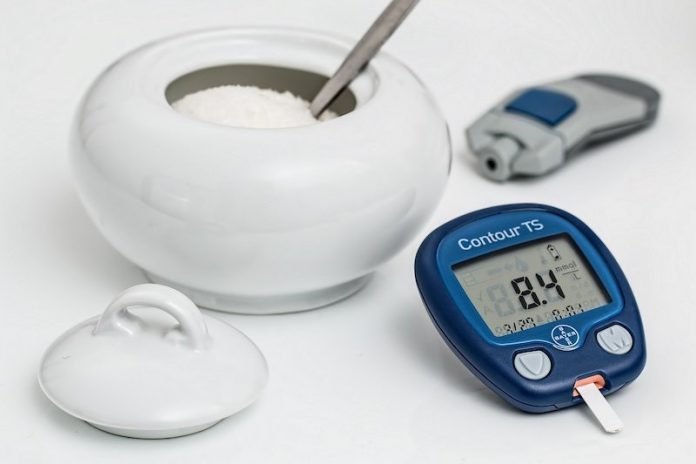
Type 2 diabetes is a disease that affects 300 million people worldwide.
Scientists have been trying to understand how a key biological molecule self assembles into a rogue protein-like substance known as amyloid.
It’s believed that amyloid is linked to several life-limiting illnesses including Alzheimer’s Disease, Parkinson’s Disease and type 2 diabetes.
In a new study from the University of Leeds, researchers finally identify the step-by-step changes that take place in the molecule known as human islet amyloid polypeptide, or hIAPP, as it changes into amyloid.
They have also discovered new compounds that are able to speed up or slow down the process.
In healthy people, hIAPP is secreted by islets in the pancreas alongside the hormone insulin and it helps to regulate blood glucose levels and the amount of food in the stomach.
When hIAPP malfunctions, it forms clumps of a protein-like substance called amyloid fibrils that kill the insulin-producing islets in the pancreas.
The build-up of amyloid fibrils is seen in people with type 2 diabetes although the exact mechanism of how it triggers disease is not known.
In the current study, the team revealed the complex molecular changes seen in hIAPP molecules as they transform into amyloid fibrils.
The researchers also announced that they have discovered two compounds, described as molecule modulators, which can control the process: one of the compounds delays it, the other accelerates it.
These molecule modulators can be used as “chemical tools” to help scientists investigate the way amyloid fibrils grow and how and why they become toxic.
More importantly, they offer “starting points” for the development of drugs that could halt or control amyloid fibril formation and help in the urgent search to find ways to treat type 2 diabetes.
As professor Sheena Radford says, this is an exciting and huge step forward in our quest to understand and treat amyloid disease and to tackle a major health issue that is growing at an alarming rate.
The compounds we have discovered are the first and important step towards small molecule intervention in a disease that has foxed scientists for generations.
If you care about diabetes, please read studies about a new cause of type 2 diabetes, and daily food that may reduce your risks of diabetes and high blood pressure.
For more information about diabetes, please see recent studies about these common drinks that may make type 2 diabetes less deadly, and results showing this small habit can make big progress in diabetes control.
The study was conducted by Sheena Radford et al., and published in Nature Communications.
Copyright © 2022 Knowridge Science Report. All rights reserved.



